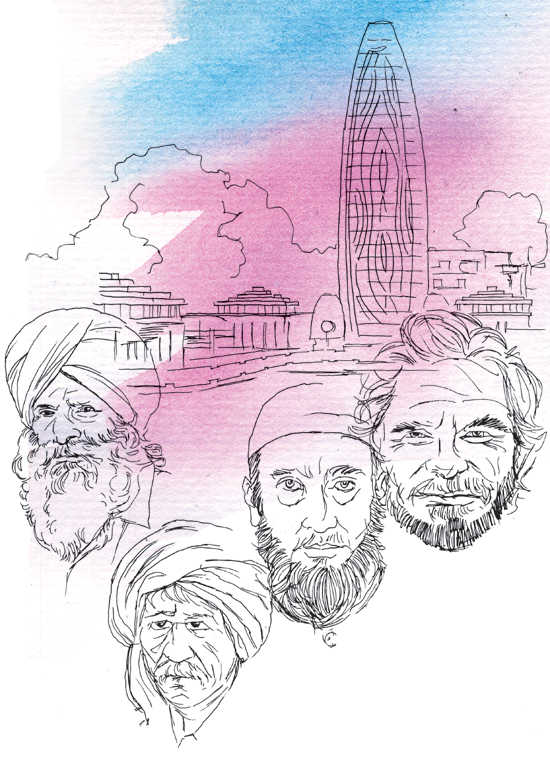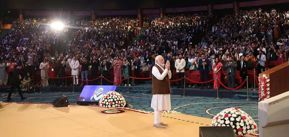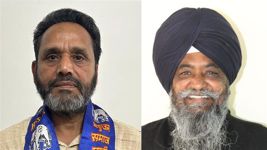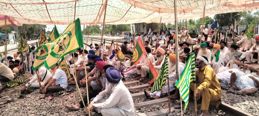
Illustration: Sandeep Joshi
Roopinder Singh
The narrow entrance that opens to the road leading to the Golden Temple; the well in which people jumped to save themselves; bullet scars on walls; the flame-shaped memorial - all now are familiar to us all.
Jallianwala Bagh and what happened there is a part of the collective memory of India. We all know the basic contours. On April 13, 1919, a peaceful gathering of Amritsar residents was fired upon by a Gurkha-British Army contingent led by Brigadier-General Reginald Edward Harry Dyer. The soldiers fired 1,650 rounds into the crowd and killed the protesters by the hundreds. The British official figure is 379, whereas it is commonly believed to be three times higher.
A look at the time and the people and their leaders would be illuminating. Amritsar was then led by Dr Saif-ud-Din Kitchlew, the Cambridge-educated lawyer who was a friend of Jawaharlal Nehru. He had been awarded a PhD from Munster, Germany. As Nigel Collet writes in The Butcher of Amritsar: "Kitchlew, a Muslim barrister, was chairman of Punjab satyagrah sabha and a rousing advocate of both political change and Gandhi's non-violent methods....He was a prominent Khilafat activist and the local National Congress leader, the man behind the invitation for the All-India National Congress to be held in the city."
Dr Satyapal earned his BA MB degree from Panjab University, Lahore. He served as a Lieutenant in the British Army Medical Service in Aden. To quote from the book again: "On March 29, Dr Satyapal was prohibited from public speaking, though he was a man who had hitherto only advocated non-violent civil disobedience and who had been the leader of the campaign to restore the sale of platform tickets to Indians at Amritsar station. Though he had served Crown loyally in Aden, he was a Hindu of strong beliefs, and active member of Arya Samaj, as well as of many Hindu charitable organisations."
At Mahatma Gandhi's direction, they joined the nation in organising a bandh and a fast in Amritsar on March 30, 1919. They would later learn that the strike had been postponed and that the new date was April 6.
Sir Michael O'Dwyer, Lieutenant-Governor of the Punjab, was badly rattled by the deteriorating situation in Amritsar, and other cities of Punjab. His government issued orders banning local newspapers and prohibiting the main leaders, including Dr Satyapal in Amritsar, from speaking in public. The strike took place, nevertheless, and Dr Kitchlew, who had not yet been banned, addressed the gathering at Jallianwala Bagh.
Another general strike followed on April 6, despite the efforts of the local Deputy Commissioner, Miles Irving, who had barely settled, having joined a month ago. He was rather rattled by the Ram Navami procession on April 8 at which boys dressed as Turkish soldiers, clapped disrespectfully on seeing Irving. The band, however, played "God Save the King" for him and he was saluted by those in the procession. There was no violence whatsoever, but the anger in the general population against the British administrators was palpable. A sense of disquiet, a feeling that the writ of the British did not run in the city was now quite high even among the Europeans living in Amritsar.
To quote from the Hunter Commission Report: "The 9th April was the day of Ram Navami — a Hindu festival on which cars are commonly drawn in procession, accompanied by people raising cries in honour of Hindu deities. This practice was followed as usual in Amritsar, but contrary to previous practice, the festival was very largely participated in by Muhammadans, and along with the usual shouts, political cries were freely raised 'Mahatma Gandhi hi jai', 'Hind-Mussalman ki jai.' The effect of the evidence before us is that the festival became a striking demonstration in furtherance of Hindu-Muhammadan unity — people of the different creeds drinking out of the same cups publicly and by way of a demonstration." Such was the spirit of the composite culture that manifested itself in the Ram Navami celebrations in Amritsar.
British administrators' insecurity led to deportation order against Dr Kitchlew and Dr Satyapal and a ban on the entry of Mahatma Gandhi who was on his way to Amritsar. Dyer and his men were unleashed with fateful consequences.
Today we look back from the comfort of the present-day democratic and free India, brought about, in no small measure, by the sacrifices of freedom fighters who were incarcerated, deported to Andaman Islands, faced the noose in British jails and were killed by bullets in protest gatherings like the one held on Baisakhi day at the Jallianwala Bagh in 1919.
Hindus, Sikhs and Muslims had gathered together to face British colonial imperialism. Let us also remember the original spirit of nationalism that brought persons of various denominations together to fight for the motherland. Our nationalism subsumed sub-nationalisms for a higher humanistic goal and brought out the best in Indians — non-violence, no matter what provocation, what the privations faced. The leaders consolidated the multiplicity of opinions through a spirit of accommodation and made the effort to include everyone — men and women of all castes, creeds and religions — in the struggle against the colonial power. This inclusive core ensured its success. It always will.



























